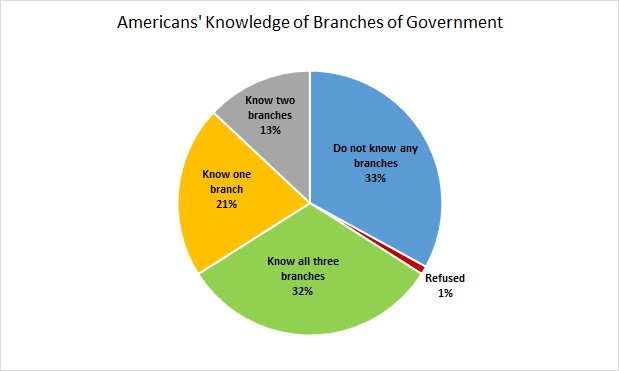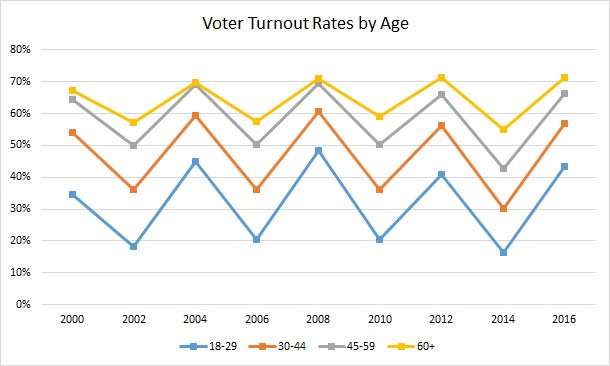Today is Constitution Day and Citizenship Day, observed each year to commemorate the signing of the Constitution on September 17, 1787 and “recognize all who, by coming of age or by naturalization, have become citizens,” according to the Library of Congress. It makes for a good occasion to reflect on the state of civics education in America, a topic that has received renewed focus since the 2016 presidential election.
One question that is often debated in this conversation is whether civics education should focus on teaching content and critical thinking skills, or encouraging civic engagement and activism. This presents a false choice, as schools should be responsible for ensuring that students are both adequately informed and sufficiently engaged — not one or the other.
One side of this debate contends that civics education should first and foremost provide students with a basic understanding of how the American political system works and teach them how to think about political issues. Under this approach, students should develop a well-informed understanding of all sides of an issue, including the underlying facts and proposed solutions, only venturing into political activism once they have mastered the necessary knowledge and skills.
This approach is well intended: it is important to cultivate a citizenry capable of robust debate that honestly grapples with the benefits and tradeoffs associated with each issue. And improvement is certainly needed, based on students’ poor performance on the National Assessment of Educational Progress (NAEP) civics assessment, which measures “the civics knowledge, skills, and dispositions that are critical to the responsibilities of citizenship in America’s constitutional democracy.” According to the most recent civics assessment, last administered in 2014, only 23 percent of eighth grade students scored at or above the proficient level. In 2010, when NAEP last tested high school seniors in civics, only 24 percent scored at or above the proficient level.
However, neither of these results has changed significantly since 1998, and it’s not as if older voters — who vote at much higher rates than younger voters — are necessarily bastions of civic knowledge. For example, according to the most recent results from the Annenberg Public Policy Center’s annual civics survey, released last week, fewer than one third of Americans can correctly name all three branches of government, and many also lack important knowledge about how each branch functions.
Additionally, civic engagement, particularly voting, is not just about making a well-reasoned choice between two or more options. It’s also a way of demonstrating political power. When young people aren’t engaged, they are leaving their figurative voice out of the political conversation, meaning the issues they care about may receive less attention, and policies that affect young people may be enacted without their input. Our education system should have a strong interest in empowering young people and starting them on a path of self-advocacy.
While the goal of civics education should be to both adequately inform students and get them engaged in the political process, it’s clear that we aren’t doing a good enough job on either front. This isn’t surprising when you consider how little time is spent on civics education. Based on a recent analysis from the Center for American Progress, 40 states require coursework in U.S. government or civics. While nine states require one year of such coursework, 31 only require a half-year, and 10 states have no requirement at all.
If we want to ensure that the next generation of citizens is sufficiently prepared for civic life, we need to commit the necessary time and resources — certainly more than one semester. We should view this Constitution Day and Citizenship Day as an opportunity to rededicate ourselves to the civic mission of schools.

